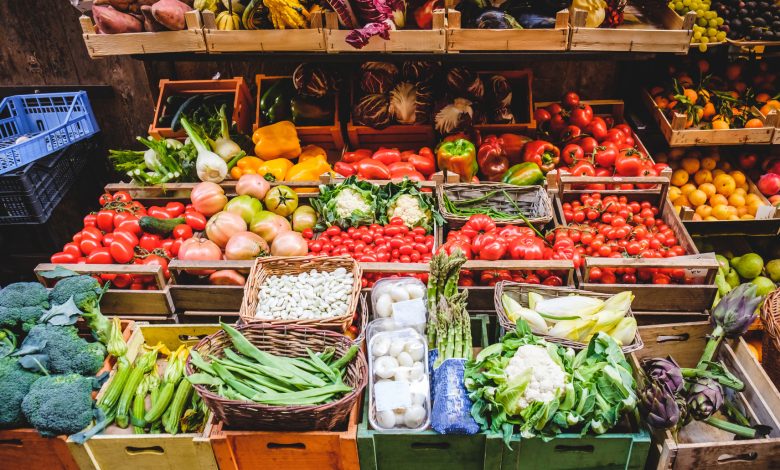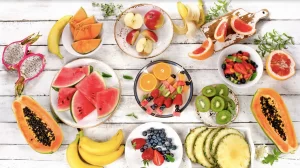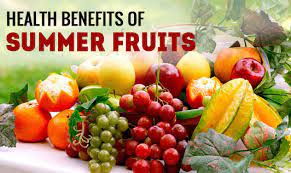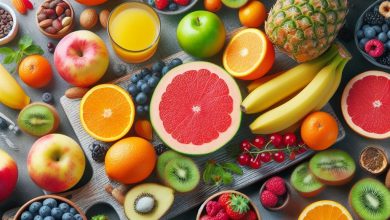16 healthiest fruits and berries that will help you not get sick

Lemon
This fruit contains a lot of vitamin C, citric acid and flavonoids. The latter are antioxidants that prevent cancer and cardiovascular diseases.
Vitamin C protects against oxidative stress. This is the name given to the destruction of cells by harmful substances – free radicals.
Lemon is especially good for the heart – it lowers cholesterol and blood pressure. And animal studies have shown that the fruit produces special enzymes that destroy fatty tissue.
Citric acid also helps treat urolithiasis.
Orange
One medium orange contains 139% of your daily value of vitamin C and 20% of fiber. It also contains a lot of B vitamins: thiamine and folic acid.
In its properties, an orange is similar to a lemon. Moreover, studies have shown that orange prevents the formation of kidney stones even better than lemon.
The fruit also helps the absorption of iron in the intestines, preventing the occurrence of anemia.
Banana
One medium banana contains 23% of the recommended daily value of potassium. This mineral helps the heart function normally. When potassium is low, the risk of coronary heart disease increases by 49%. Hypertension, osteoporosis and urolithiasis may also develop.

Bananas are high in slow carbohydrates and pectin, which help maintain normal blood sugar levels. Pectin also feeds beneficial bacteria in the intestines, which protect us from ulcers and other diseases of the digestive tract.
Banana is very nutritious and is therefore considered one of the best sources of energy before workouts.
Grapefruit
Grapefruit is high in vitamin C and potassium. It used to be believed that the fruit helps you lose weight, but this is a myth. Grapefruit, like other citrus fruits, protects against urolithiasis, cardiovascular disease and stroke in women.
Pineapple
Another record holder for vitamin C content. Pineapple also contains a lot of manganese and bromelain.
Manganese is important for bones. The study showed that the substance helps improve their hardness, thereby reducing the risk of osteoporosis.
Therefore, there is less chance of having a heart attack or stroke. Other scientists claim that bromelain prevents cancer.
Avocado
Other fruits mostly contain carbohydrates, but avocados are high in healthy fats. Most of them are oleic acid, which relieves inflammation. Avocados also contain beta-sitosterol, which maintains normal cholesterol levels and reduces the risk of cardiovascular disease.
Avocados also contain a lot of magnesium, potassium and fiber.
Magnesium is involved in more than 600 chemical reactions in our body, including protein synthesis and energy metabolism. The mineral is especially useful for athletes, as it improves endurance.
Animal studies have shown that fiber supports beneficial bacteria in the gut and helps control weight.
One avocado contains 21% of the daily value of potassium. This mineral lowers blood pressure and reduces the risk of stroke.
Apples
Apples contain a lot of fiber, potassium, vitamins C and K. Vitamin K is very important for normal blood clotting and bone development. Apples also contain a lot of pectin, a prebiotic fiber that feeds beneficial bacteria in the intestines and helps improve digestion.
Apples help our brain. One study confirmed that their antioxidant quercetin protected neurons from premature death. Eat this fruit to also protect against thrombotic stroke.
Pomegranate
The main strength of pomegranate is its antioxidants. It has three times more of them than in green tea and red wine. They help protect cells from damage and aging, and also reduce inflammation.
Research shows that pomegranate prevents colon cancer and lowers blood pressure.
Pomegranate juice is especially useful for older people: it improves memory.
Strawberry
One large berry contains 18% of the daily requirement of vitamin C and 1% each of fiber and potassium.
Strawberries are full of heart-healthy antioxidants. Thanks to anthocyanin, the berry reduces the risk of heart attack among women by 30%. Strawberries also lower blood pressure and cholesterol levels.
Antioxidants reduce inflammation: they neutralize the chemicals responsible for it.
Strawberries control blood sugar levels, thereby preventing the development of diabetes.
Another study showed that if people with precancerous diseases – esophagitis or Barrett’s esophagus – eat 60 grams of dried strawberries daily, the risk of esophageal cancer will decrease.

Blueberries
Blueberries are rich in vitamins C and E, iron, zinc and potassium.
Drinking berries or blueberry juice can help you lose weight and reduce inflammation.
Eat blueberries to protect yourself from diabetes: they lower blood sugar levels.
Blueberries also increase the level of “good” cholesterol and reduce the amount of “bad” cholesterol. The latter causes atherosclerosis.
Raspberry
Raspberries are high in vitamins C and K, fiber and manganese, as well as polyphenols. This antioxidant protects against cardiovascular disease, diabetes, obesity and Alzheimer’s disease.
Drinks with raspberries help to recover after workouts: the berry reduces oxidative stress.
Cranberry
Like many other berries, cranberries contain the antioxidant polyphenol. Therefore, fresh berries are much healthier than cranberry juice.
The most important thing for health is that cranberries protect against infections. It prevents E. coli bacteria from sticking to the walls of the bladder, which can cause urinary tract infections. It also fights the bacteria Helicobacter pylori: they cause ulcers and stomach cancer.
Cranberries are also very good for the heart. It reduces cholesterol levels, high blood pressure and oxidative stress. Berries also make arteries more elastic. This is necessary to prevent atherosclerosis from developing.





